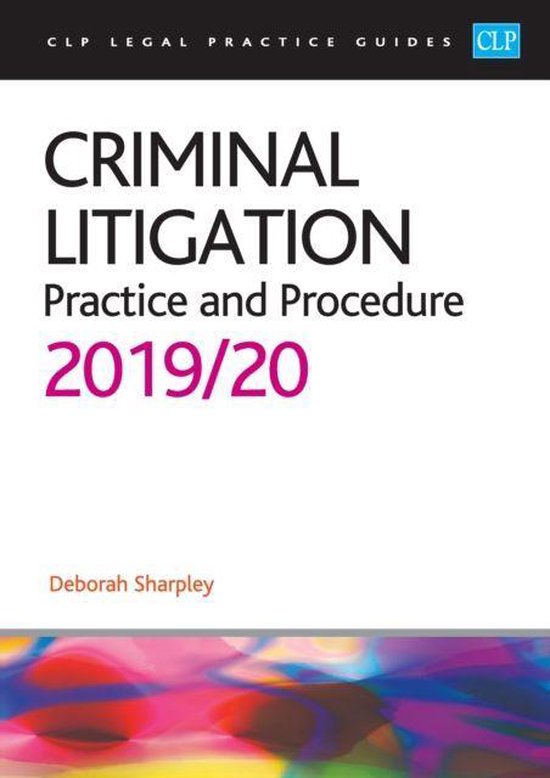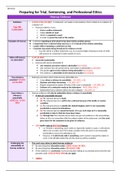Preparing for Trial, Sentencing, and Professional Ethics
Hearsay Evidence
Definition s114(1) of the CJA 2003: “a statement, not made in oral evidence, that is relied on as evidence of
a matter in it”.
Page 380 Hearsay evidence is any:
FLOWCHART Oral or written statement.
Made outside of court.
Which is repeated in court.
In order to prove the truth of the matter.
Examples of hearsay A witness repeating at trial what he has been told by another person.
A statement from a witness being read out at trial instead of the witness attending.
A police officer repeating a confession at trial.
A business document being introduced in evidence at trial
o E.g. this will be a written statement; e.g. an accounts ledger showing an entry of £500
will amount to a statement made outside of court.
When will hearsay s114 CJA 2003:
be admissible? Generally inadmissible.
Hearsay will only be admissible if:
Any statutory provision makes it admissible (s114(1)(a))
Any common law rule preserved by s118 makes it admissible (s114(1)(b))
The parties agree to the evidence being admissible (s114(1)(c))
The evidence is admissible in the interests of justice (s114(1)(d))
“Any statutory Relevant provisions which make hearsay admissible are:
provision” s114(1) Cases where a witness in unavailable – CJA 2003, s116
(a) CJA 2003 Business and other documents – CJA 2003, s117
Reports prepared by experts (if leave of the court is obtained) – CJA 1988, s30
Evidence of a confession made by the defendant – PACE 1984, s76(1)
Statements from a witness which are not in dispute – CJA 1967, s9
Cases where a Hearsay evidence will only be admissible where a witness is unavailable
witness is IF they are unavailable because:
unavailable (a) The relevant person is dead;
s116(2) (a – e) CJA (b) The relevant person is unfit to be a witness because of his bodily or mental
2003 condition.
(c) The relevant person is outside the United Kingdom and it is not reasonably
practicable to secure his attendance.
(d) The relevant person cannot be found, although such steps as it is reasonably
practicable to take to find him have been taken.
(e) Through fear the relevant person does not give oral evidence in the proceedings,
either at all or in connection with the subject matter of the statement, and the court
gives leave for the statement to be given in evidence.
s116 applies only to first hand hearsay
i.e. if B tells C something, and C seeks to repeat the matter in court, C will only be
able to do so under s116 if B is dead, outside of the UK and it is not reasonably
practicable to secure his attendance etc.
However, if A tells B who tells C something, and C seeks to repeat the matter in
court, s116 will not enable this and the hearsay will be excluded.
Challenging the The court may refuse to admit hearsay evidence:
admissibility of By exercising their discretion under s126(1) of the CJA 2003.
hearsay evidence By exercising their discretion under s78 of PACE 1984.
If the evidence is a confession, by the prosecution failing to successfully prove that the two
grounds under s76(2) of PACE 1984 do not apply.
s126(1):
1



